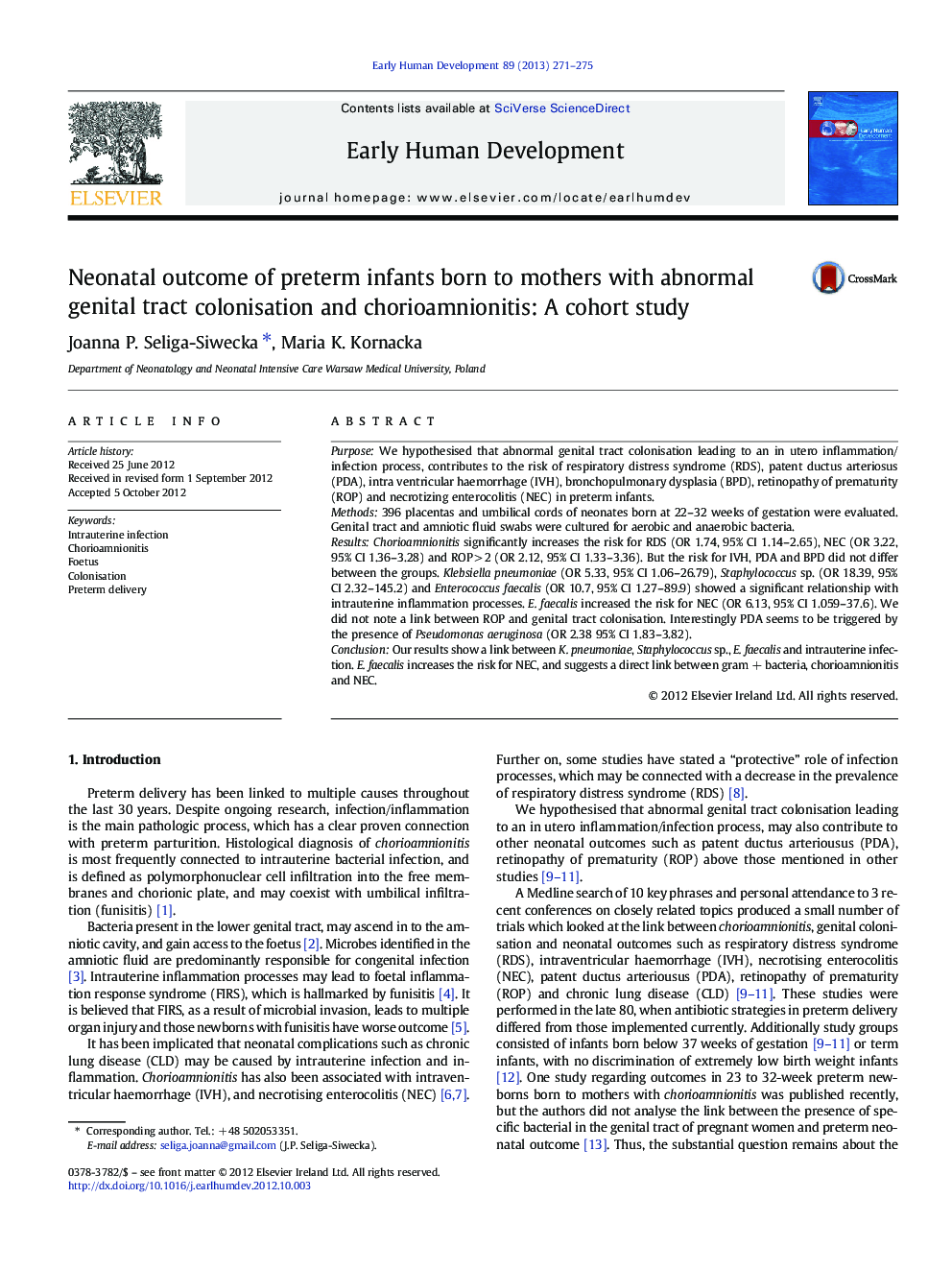| Article ID | Journal | Published Year | Pages | File Type |
|---|---|---|---|---|
| 6171994 | Early Human Development | 2013 | 5 Pages |
PurposeWe hypothesised that abnormal genital tract colonisation leading to an in utero inflammation/infection process, contributes to the risk of respiratory distress syndrome (RDS), patent ductus arteriosus (PDA), intra ventricular haemorrhage (IVH), bronchopulmonary dysplasia (BPD), retinopathy of prematurity (ROP) and necrotizing enterocolitis (NEC) in preterm infants.Methods396 placentas and umbilical cords of neonates born at 22-32Â weeks of gestation were evaluated. Genital tract and amniotic fluid swabs were cultured for aerobic and anaerobic bacteria.ResultsChorioamnionitis significantly increases the risk for RDS (OR 1.74, 95% CI 1.14-2.65), NEC (OR 3.22, 95% CI 1.36-3.28) and ROPÂ >Â 2 (OR 2.12, 95% CI 1.33-3.36). But the risk for IVH, PDA and BPD did not differ between the groups. Klebsiella pneumoniae (OR 5.33, 95% CI 1.06-26.79), Staphylococcus sp. (OR 18.39, 95% CI 2.32-145.2) and Enterococcus faecalis (OR 10.7, 95% CI 1.27-89.9) showed a significant relationship with intrauterine inflammation processes. E. faecalis increased the risk for NEC (OR 6.13, 95% CI 1.059-37.6). We did not note a link between ROP and genital tract colonisation. Interestingly PDA seems to be triggered by the presence of Pseudomonas aeruginosa (OR 2.38 95% CI 1.83-3.82).ConclusionOur results show a link between K. pneumoniae, Staphylococcus sp., E. faecalis and intrauterine infection. E. faecalis increases the risk for NEC, and suggests a direct link between gram + bacteria, chorioamnionitis and NEC.
